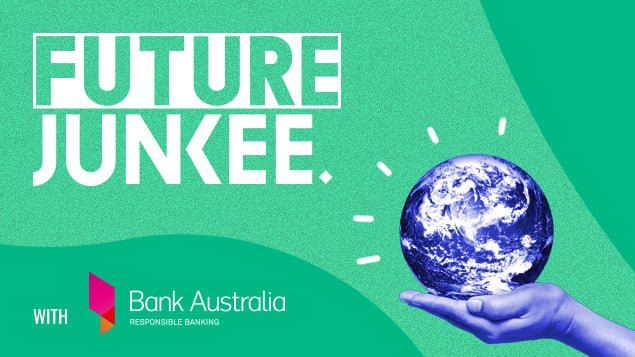Australia Must Listen To First Nations People If It Wants To Combat Climate Change

Ngajanoo nilawal Marlikka naigyoo yimardoowarra marnin. My name is Marlikka, and I am a woman who belongs to the Fitzroy River. I grew up on country reading the signs up in the sky, down on the ground. I have watched country change just in my lifetime.
Recently we have all seen the signs of country changing in the news, drought, fires, poor air quality and that’s just this week. The greenhouse effect was discovered in the 1850s, and by the early 1970s models were created to predict global sustainability and found that our civilisation would end by 2040. The greed of our governments and corporations are testing the limits of our world.

Image: Sam Cater
In the last 12 months, we have seen three mass fish deaths at Menindee Lakes, caused by drought and more significantly excess upstream diversion of water for irrigation. Towns dependent on the Murray Darling are finding higher prices for lower quality water, yet the cotton grows. Barlow, one of the people accused of water theft, has been fined $190,000 and others are still in court, but this is not a deterrent for future greed.
Currently, in the Kimberley region, Gina Rinehart is asking for 325 billion litres from the Fitzroy River, and Malcolm Harris wants another 50 billion. Last year Rinehart’s Liveringa station was the site of a mass Sawfish death, a critically endangered species.

Image: Sam Cater
In addition to industrial agriculture, the Fitzroy River is one of the areas under threat from fracking as the ban was lifted last year under the McGowan Government. Placing one of the last five great wildernesses on Earth at risk but this is no surprise from the Labor government.
In QLD, the government has supported Adani’s Carmichael Coal project to the extent that they extinguished Native Title, and billions of dollars are promised in subsidies — while the price of coal slumps globally. Australia could be a leader in the green economies, but our government won’t let us.

Image: Sam Cater
Australia is falling behind. Governments around the world are listening to First Nations people, integrating legal systems with First Law. In New Zealand the Whanganui River is a legal person, protecting it as ancestral being, along with a nearby forest. This allows for the law of the land to operate, but not undermine the new law and society.
Our government has continued to view First Nations people as uncivilised because it allows them to continue the belief of Terra Nullius and the foundation for a ‘legitimate’ claim to land. However, traditional ecological knowledge is science. First Nations people have been conducting experiments and testing hypotheses in their regions for tens of thousands of years.

Image: Sam Cater
A dreamtime story in my area is about the home of the one-eyed snake, a creature mutated by uranium. We have the science, but the message is lost in translation — or because we do not have your accreditation.
In my culture, Nyikina, there is a word called Bookarrarra, meaning the past, present and future fused at this moment in time — in which we, as human beings, have to respond and react in the protection of the country. It is a crucial word, placing us as traditional owners from the beginning of time. We have a due diligence to learn from the old stories, to take them as the first law, to understand what they teach us about values, ethics and code of conduct — how to live in a civil society.

Image: Sam Cater
One of the things we say as Nyikina people is that we live in a world of we, not me. It’s vital when we are developing strategies to look at the collective wellbeing of not just First Nations peoples, but fellow Australians and, indeed, the global community.
Marlikka is a young Nyikina and Barkinji woman with connections to country on the West and East Coasts of Australia. She is the First Nations Officer for the Sydney University Law Society and a mentor with Mentoring Our Brothers and Sisters program.
